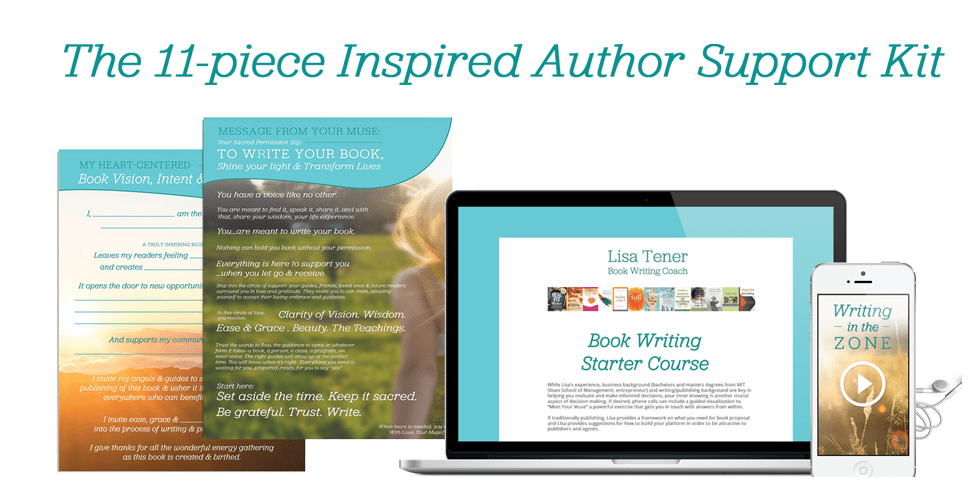“How to Write a Foreword” is one of my most popular posts, so here’s my updated version from 5/27/2021. New material includes how to decide whether to write a foreword, should you charge to write a foreword, the benefits of writing one, writing the foreword to a memoir and other narrative nonfiction, what to ask the author to get it right and save time.

I’m sometimes asked how to write a foreword: What goes into a foreword?
I’m a big believer in not being overly formulaic, so the following are guidelines for how to write a foreword. Feel free to be creative.
[bctt tweet=”If you are writing a foreword for a self-help book or how-to book…”]
- Share how you met the person or how you know them. This “social proof” establishes the connection between you and the author and helps establish the author’s credibility. Share what struck you about the person, and any particular skills, knowledge and wisdom they demonstrated over time. If you can open your foreword with a story, that’s particularly compelling.
- Give a sense of the scope of the problem this book helps to solve. You may use statistics and research to back this up or personal experience and anecdotes.
- Share some specific credentials of the author: that she teaches at Harvard, that he is one of the world’s most foremost researchers on deep sea creatures or that she is the first person to develop recovery groups for people addicted to scrapbooking—a pioneer in the field.
- Share how the author has helped others: the people in her scrapbooking recovery groups have gone on to develop healthier habits like stamp collecting or even married non-scrapbookers. Or share how you have referred scrapbooking addicts to this expert and have been amazed at the results and how these former addicts have gone on to lead normal lives, painting a picture of normal, of course.
- Give examples of what readers might find in this book and how it can transform their lives: the state of the art scrapbooking recovery model; tips for forming new, less-destructive hobbies.
Writing the Foreword to a Memoir or Other Narrative Nonfiction
If the book is more narrative in nature, such as a memoir, your comments may focus more around:
- The impact the book had on you
- The beauty of the writing
- The freshness of the ideas
- The timeliness of the insights and perspective
- Why the book is particularly important to the public discourse
- What it might inspire in the reader
Additional Tips to Write a Foreword
Looking for a few ways to have more impact with your foreword?
* Start the foreword with a “hook” that draws readers in. As mentioned, a brief story can provide a compelling hook. Other hooks can include counterintuitive information or something that piques the reader’s curiosity.
* Establish your own credibility around this particular subject, including any leadership roles you have played. If you’re a celebrity and your connection is your own experience or that of a loved one (i.e. you overcame your scrapbooking addiction, or your sister lost her home because of her scrapbooking addiction), share that (as long as you have your sister’s permission). Do this in a way that highlights the contents of this particular book and how it can help readers.
* A conversational tone can help draw readers in.
* Likewise, personal details, such as applying an aspect of the book to your own life, make a foreword compelling.
Talk to the Author
Here are a few tips to make sure you write the right foreword! Plus, these tips will save you time from having to start from scratch. Ask the author:
- Who is the target audience for the book? [unless this is truly obvious]
- Are there particular skills, credentials or stories you would like me to mention in the foreword?
- What specific benefits of the book would you like me to address?
Should You Charge to Write a Foreword?
Some people, especially celebrities, do charge to write a foreword. Most foreword writers do not charge.
There are significant benefits to you to writing a foreword.
Benefits to Writing The Foreword to a Book
- You get free advertising with every copy of the book that’s sold. And if you’re quoted on the front of back cover, that’s even more free advertising to everyone who sees that cover on Amazon and other websites or in bookstores!
- Being a foreword writer on this subject reinforces you as an expert in the field or as a celebrity.
- Doing something beneficial for others on the path is a way to pay it forward (not foreword!) and generosity is a fulfiling experience!
- In addition to the good karma, you may need a favor some day and this author will be happy to be able to give back, perhaps helping your last book–or your next–find new readers.
For those reasons, I would encourage you to not to charge for writing a foreword.
Should You Say Yes to Write the Foreword to a Book?
Now that you know the benefits of writing a foreword, it’s important to ask yourself, whehter you should write this particular one! Firstly, before you agree to write a foreword, make sure you the book is of high quality and that you agree with its orientation or perspective. If there are statistics or research, it can’t hurt to do a little fact checking.
Ideally, you would ask to see the full book before agreeing to writing a foreword. However, literary agents and publishers LOVE to see the name of a bestselling author, celebrity or expert in the field on the book proposal. It can help clinch the book deal because it’s both social proof, as mentioned earlier, and will be used by Amazon’s search algorithm, a big boost to book sales.
So, it can help the author tremendously to include in the proposal a high profile expert or celebrity has agreed to write the foreword (and this usually takes place before the book is complete, if the book is prescriptive nonfiction–how-to, self-help, business,etc.). The good news is that a solid book proposal should be enough to confirm the quality and general content of the book. Ask to see the chapter outlines and sample chapter(s) from the proposal. That should be enough to go on.
Should You Ask the Author to Write the Foreword for You?
Sometimes the author will write the foreword for you. Is that a good idea? It depends:
Pros:
- It saves you lots of time.
- It presumbably ensures you hit on the points the author wishes.
- If the book is not yet complete, but you’re writing the foreword so they can submit it with their book proposal, you will know less about the actual contents than the author does.
Cons:
- An essentially ghostwritten foreword likely won’t add as much to the reader’s experience than what you can offer readers from your own unique perspective.
- It may not sound like you.
- It may sound too much like the marketing copy and the author’s voice.
- It’s not authentic.
My advice is, if you don’t have much time to write or just feel like you could use a starting place to save you time, you can ask the author to provide a rough draft of the foreword, or perhaps a checklist or bullet list of what they want you to include. If they provide a draft, be sure to take the time to put it in your own voice. Add some original content about your reaction to the book or your personal experience of the subject. In this way, you’ll add value to the readers of the book and make the foreword a more compelling read in and of itself. After all, everything you write, or share your name to, reflects on you.
Please share your questions or comments below!
 Click here to receive a the free Inspired Author Support Kit, along with weekly writing and publishing tips, author interviews and more.
Click here to receive a the free Inspired Author Support Kit, along with weekly writing and publishing tips, author interviews and more.



I was unable to write my foreword. i was so happy when I later saw how it was prepared. Thanks am so glad that I made it. God bless, favour, increase and back you up in Jesus name(Amen).
More genius, Lisa! Following you is the best thing I can do for my writing!
Alan Moore wrote my foreword, I forgot to explain who he was oops! Is that bad?
Hi Danny. Perhaps you can just put his title/position underneath his name in the foreword. Is it too late to do that?
Very helpful. Thank you.
Very useful. Thanks Lisa
So helpful!!!
Ha! Love the example of the scrapbooking addict. I cross stitch, so I get that could be a real thing. The information was very helpful, as I am in the process of writing a book and completing a foreword for another book. Do you ever review or edit forewords for writers? Also, is there a wrong way to complete a foreword?
Hi Shan, Either I or my colleague can edit a foreword. It would be good to know what the author is looking for in the foreword you are writing.
Lisa,
This was a big help.
Thanks!
You’re welcome, Monique. Are you writing a foreword for someone else’s book or looking for someone to write one for yours?
Your tips on writing a forward was quite helpful. It took away the scare from me. A friend had ask I do a forward for his book. I am glad I read your guide. Hope to remind connected God bless.
Your material on this subject matter is precise and instructive even for a new writer.
Thanks.
Thank you Julius. Let me know if you have any questions.
I find your piece very resourceful.
Thanks Lisa
Thank you. I had no clue how to start with a forward for a book. The insights you have shared are very useful. Thank you God bless you.
Thank you Lisa. This was just what I was looking for since being asked to write a forward for an author’s book.
Great. Just be sure to spell it correctly!
Hi, Lisa. I have been and am nearly complete with putting the Bible in a chronological format with commentary and side notes between verses and chapters, all 66 books. A friend brought to my attention do I have someone to do the forword picked out? This is something I never thought of. Is it necessary/required? I noticed other Bibles I have don’t have one, but they’re put in place by well-known names unlike me. Your thoughts please when you can and thank you. Guy
A foreword by a well known person could lend credibility to the project/book. In addition, it can help get your book found on Amazon when people search for that author/expert. One thing you may need to ask an attorney is whether you can use someone else’s translation of the bible. I am guessing you may need permission and may need to pay to use a particular translation. Although if you use something old like King James, you may more likely be safe (but ask an intellectual property attorney as I am just making an educated guess and that’s not good enough when it comes to the law!
Your sharing on guidelines on writing a forward has waved off a scare in me.
I can now comfortably pen down a forward.
Glad it was helpful! Feel free to ask questions here. And be sure to spell it “foreword” — like the word that comes before.
Very Helpful. This get me off to a good start. Thanks
Very helpful, thank you Lisa. I now know how to write a forward for book.